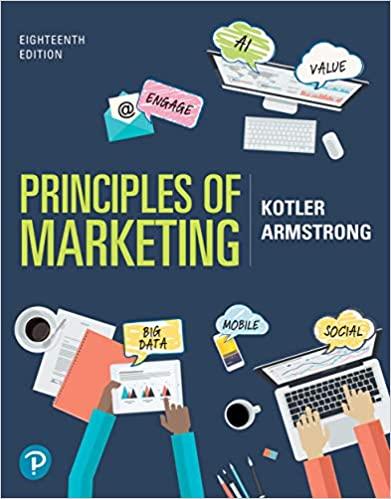Assume the company expects to sell 5 million bottles of Coca-Cola Plus in the first year after
Question:
Assume the company expects to sell 5 million bottles of Coca-Cola Plus in the first year after introduction but that 60 percent of those sales will come from buyers who would normally purchase Diet Coke (that is, cannibalized sales). Assuming the sales of Diet Coke are normally 300 million bottles per year and that the company will incur an increase in fixed costs of $500,000 during the first year to launch Coca-Cola Plus, will the new product be profitable for the company? Refer to the Financial Analysis of Marketing Tactics: Extend the Product Line section in Appendix 2: Marketing by the Numbers for an explanation regarding how to conduct this analysis.
Coca-Cola launched Coca-Cola Plus in a limited market in Japan last year and now plans to launch it nationwide in that country. Coca-Cola Plus is a zero-calorie soda (essentially Diet Coke) with 5 grams of an indigestible dietary fiber called dextrin. Although some might just call it Diet Coke with a laxative, Coca-Cola Plus is touted in Japan as a health food that suppresses the absorption of fat and keeps blood triglycerides at moderate levels. In fact, the product has earned the Japanese government’s “gold label,” designating it as a government-approved Food of Specific Health Use (FOSHU). Although the new Coca-Cola Plus reaps a higher wholesale price for the company ($1.20 per 470-milliliter bottle versus $1.15 per bottle for the original Diet Coke), it also comes with higher variable costs ($0.65 per bottle versus $0.55 per bottle for the original product). Although some Diet Coke drinkers will switch to Coca-Cola Plus, the company believes the new product will attract new customers because of its health benefits. Coca-Cola is no stranger to introducing new products in Japan. The company released Coca-Cola Coffee Plus last year and recently introduced its first alcoholic beverage called Lemon Do.
Step by Step Answer:






